Israeli military orders evacuation of several Lebanese communities near border
The warning was posted on the social media platform X.

The Israeli military has warned nearly two dozen Lebanese border communities to evacuate, hours after launching what it said was a limited ground incursion against the Hezbollah militant group.
Hezbollah denied Israeli troops had entered but said it was ready to battle them.
The military advised people to evacuate north of the Awali River, some 36 miles (60km) from the border and much farther than the Litani River, which marks the northern edge of a UN-declared zone that was intended to serve as a buffer between Israel and Hezbollah after their 2006 war.
“You must immediately head north of the Awali River to save yourselves, and leave your houses immediately,” the statement posted by the Israeli military’s Arabic spokesperson, Avichay Adraee, on the platform X said.
The army had earlier warned people not to travel south of the Litani, some 18 miles (30km) north of the border. The border region, which has largely emptied out over the past year as the two sides have traded fire.
Hezbollah denied that Israeli troops had entered Lebanon but said its fighters were ready if they did.
In its first statement since Israel announced the start of ground operations, Hezbollah spokesman Mohammed Afif dismissed what he said were “false claims” of an Israeli incursion.
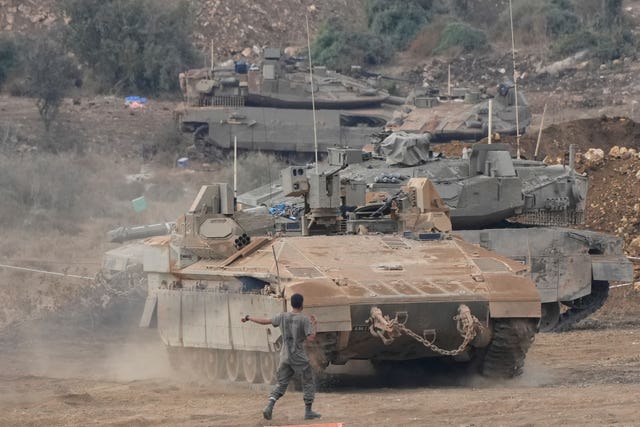
He said Hezbollah was ready for “direct confrontation with enemy forces that dare to or try to enter Lebanon”.
An Associated Press reporter saw Israeli troops operating near the border in armoured trucks, with helicopters circling overhead, but could not confirm ground forces had crossed into Lebanon.
Ahead of the Israeli announcement of an incursion, US officials said on Monday that Israel had described launching small ground raids inside Lebanon as it prepared for a wider operation.
Neither the Lebanese army nor a UN peacekeeping force known as Unifil, which patrol southern Lebanon, have confirmed that Israeli forces entered. Unifil said any such cross-border operation would be a “dangerous development” and a violation of Lebanese sovereignty.
Rear Admiral Daniel Hagari, the Israeli military’s top spokesperson, said troops were conducting “localised ground raids” on Hezbollah positions in southern Lebanon to ensure that Israeli citizens could return to their homes in the north.
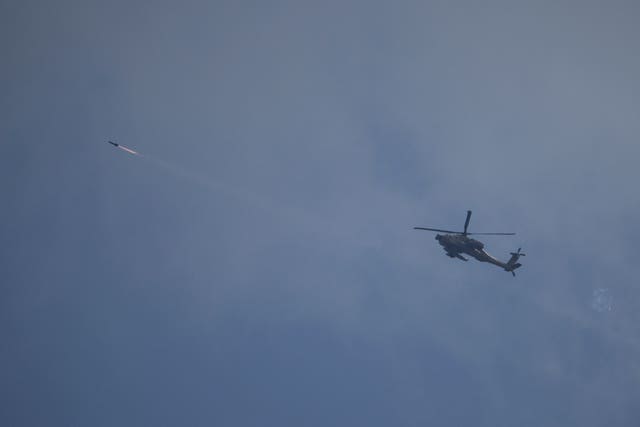
In a briefing later in the day, he said Israel had carried out dozens of small ground operations inside Lebanon going all the way back to October 8, when Hezbollah began firing rockets into Israel following the outbreak of the war in Gaza.
He said Israeli forces had crossed the border to collect information and destroy Hezbollah infrastructure, including tunnels and arsenals.
He showed photographs purporting to show Israeli soldiers inside homes in southern Lebanon. It was not immediately possible to confirm these claims.
An Israeli military official said the troops were within walking distance of the border, focused on villages hundreds of metres from Israel.
The official said there had been no clashes yet with Hezbollah fighters on the ground.
The Israeli military was accused of lying to media in 2021 when it released a statement implying that ground troops had entered Gaza.
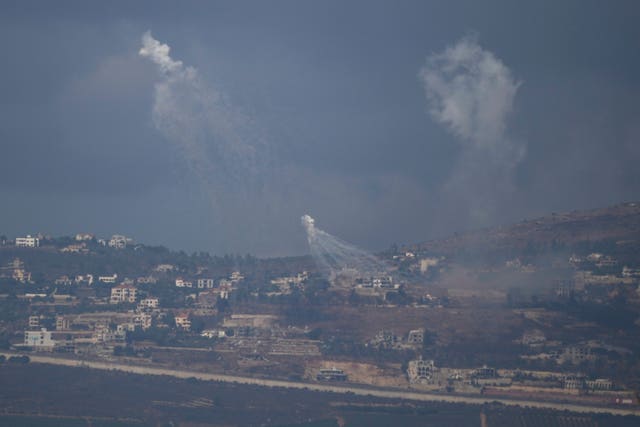
The military played down the incident as a misunderstanding, but well-sourced military commentators in Israel said it was part of a ruse to lure Hamas into battle.
Israeli artillery units pounded targets in southern Lebanon through the night and the sounds of airstrikes were heard throughout Beirut.
The official said Hezbollah had launched rockets at central Israel, setting off air raid sirens and wounding a man aged in his 50s.
Hezbollah said it fired salvos of a new kind of medium-range missile, called the Fadi 4, at the headquarters of two Israeli intelligence agencies near Tel Aviv.
The Israeli military official said Hezbollah had also launched projectiles at Israeli communities near the border, targeting soldiers without wounding anyone.
Later on Tuesday the military announced new restrictions on public gatherings and closed beaches over Hezbollah rocket fire.
The announcement on Tuesday limits public gatherings to 30 people and includes Jerusalem. It also comes a day before the Jewish New Year, Rosh Hashanah, when large crowds typically gather to pray at the Western Wall.
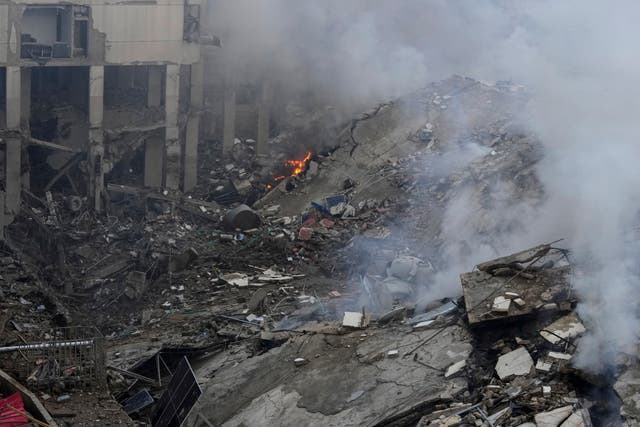
The changes are in effect until October 5. Their extension could affect memorial events planned to honour victims of Hamas’s October 7 attack.
Hezbollah began firing rockets into northern Israel shortly after Hamas’s October 7 attack into Israel ignited the war in Gaza.
Israel has launched retaliatory airstrikes and the conflict has steadily escalated.
In recent weeks, Israel has unleashed a punishing wave of airstrikes across large parts of Lebanon, killing Hezbollah leader Hassan Nasrallah and several of his top commanders, as well as many civilians.
Rear Admiral Hagari said a UN Security Council resolution that ended the last Israel-Hezbollah war in 2006 had not been enforced and that southern Lebanon was “swarming with Hezbollah terrorists and weapons”.
That resolution had called for Hezbollah to withdraw from the area between the border and the Litani River and for the Lebanese army and UN peacekeepers to patrol the region.
Israel says these and other provisions were never enforced. Lebanon has long accused Israel of violating other terms of the resolution.
Lebanon’s prime minister Najib Mikati said on Monday that his country was willing to deploy the army in support of the resolution if there was a ceasefire.
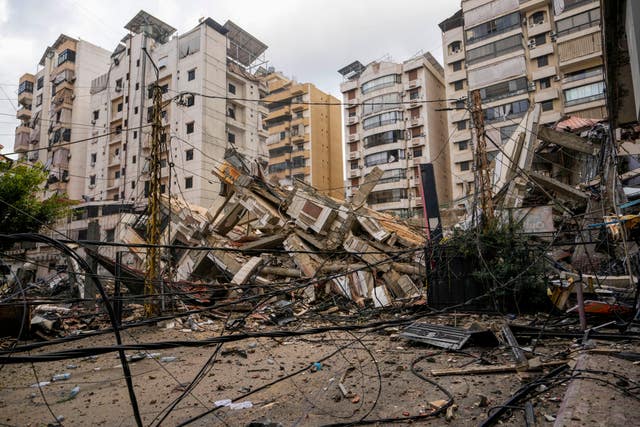
Lebanon’s armed forces would not be able to impose an agreement on the far more powerful Hezbollah.
The military statements indicated that Israel might focus its ground operation on the narrow strip along the border, rather than launching a larger invasion aimed at destroying Hezbollah, as it has done in Gaza against the Palestinian Hamas.
The military official said marching to Beirut, as Israeli forces did during their 1982 invasion of Lebanon, was “not on the table”.
Hezbollah and Hamas are close allies backed by Iran, and each escalation over the past year has raised fears of a wider war in the Middle East that could draw in Iran and the United States, which has rushed military assets to the region in support of Israel.
The incursion follows weeks of heavy blows by Israel against Hezbollah — including an airstrike that killed its longtime leader Mr Nasrallah — and seeks to step up the pressure on the group.
The last time Israel and Hezbollah engaged in ground combat was a month-long war in 2006.
There was no word on how long the operation would last, but the army said soldiers had been training and preparing for the mission in recent months.
A ground operation marks a new and potentially risky phase of fighting. It also threatens to unleash further devastation on Lebanon.
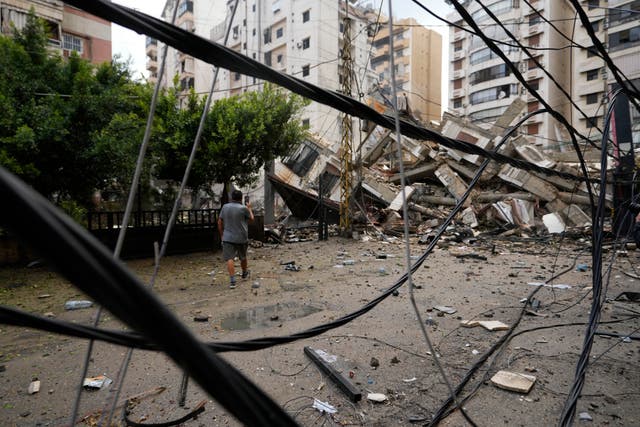
Over 1,000 people have been killed in Lebanon in Israeli strikes over the past two weeks, nearly a quarter of them women and children, according to the Health Ministry. Hundreds of thousands of people have fled their homes.
Hezbollah is a well-trained militia, believed to have tens of thousands of fighters and an arsenal of 150,000 rockets and missiles.
The last round of fighting in 2006 ended in a stalemate, and both sides have spent the past two decades preparing for their next showdown.
Recent airstrikes wiping out most of Hezbollah’s top leadership and the explosions of hundreds of pagers and walkie-talkies belonging to Hezbollah indicate that Israel has infiltrated deep inside the group’s upper echelons.
Hezbollah vowed on Monday to keep fighting even after its recent losses.
The group’s acting leader, Naim Kassem, said in a televised statement on Monday that Hezbollah would be ready for a ground operation.
He said commanders killed in recent weeks had already been replaced.
European countries have begun pulling their diplomats and citizens out of Lebanon.
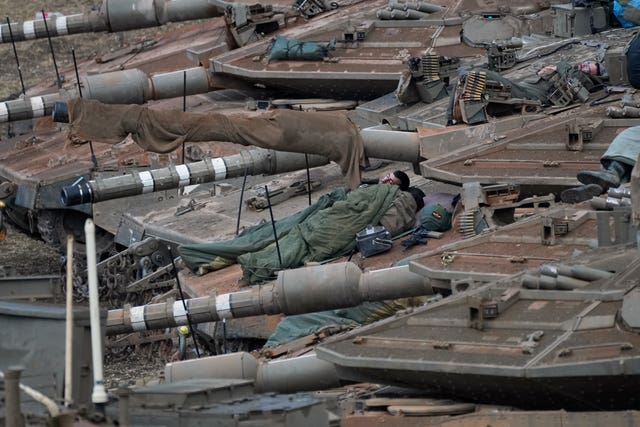
A British government-chartered flight is due to leave Beirut on Wednesday to evacuate UK nationals.
The UK has also sent 700 troops to a base in the nearby island nation of Cyprus to prepare for a potential evacuation of the estimated 5,000 British citizens in Lebanon.
Spanish foreign minister Jose Manuel Albares has urged 1,000 Spanish civilians currently in Lebanon to leave the country and for Israel to stop its assault.
Mr Albares said there are still commercial flights available to leave, but that he is in contact with Spain’s defence ministry to prepare a possible evacuation.
“The land invasion of Lebanon must stop,” Mr Albares said, while also demanding the end of Israeli operations in Gaza and the return of the Israeli hostages held by Hamas.
Spain has 676 soldiers in Lebanon deployed under a United Nations peacekeeping mission.





